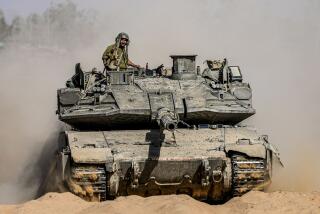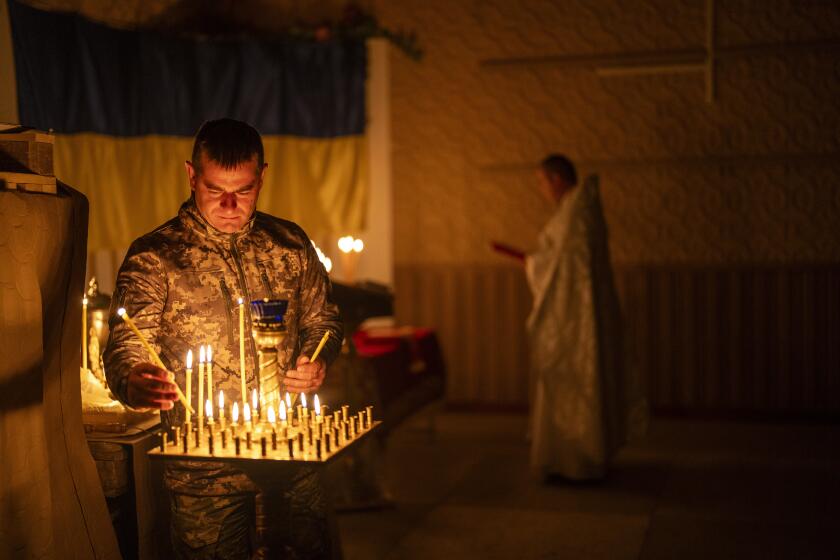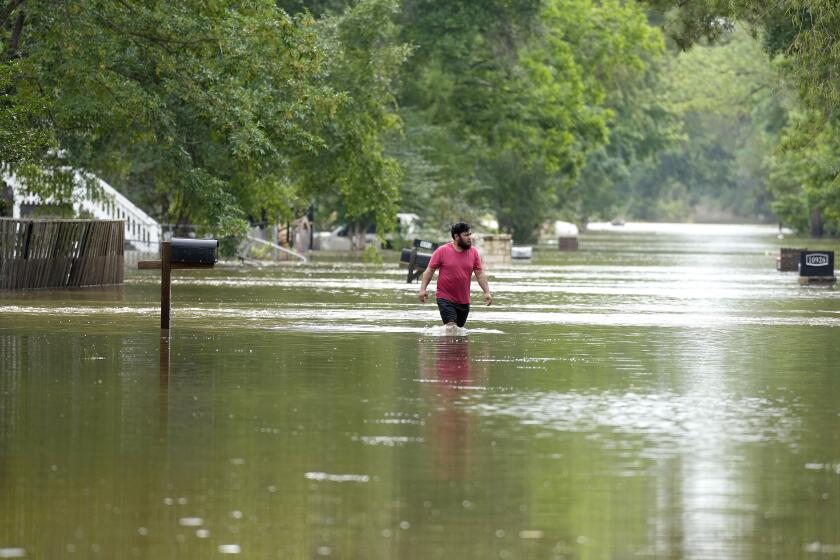Hot and Bothered, Russians’ Patience Melts With the Snow
Nowhere else could a week of balmy afternoons be greeted with such contempt.
Thursday’s high temperature of 38 degrees here in the capital made for the fourth record-breaking warm winter day in a month, surpassing weather highs going back to 1879. The famously frosty city is tepid, melting and beside itself.
“This is like April! Not January. January should be January. It should be cold. We need minus 10,” Vera Vyugina, a 48-year-old engineer, said as she walked along a sidewalk free of the rutted ice, blowing snow and free-falling icicles that make a winter stroll in Moscow as much a test of character as an exercise in mobility.
“Weather like this only increases your chances of getting the flu,” she said.
Ice-skating rinks have turned into gray bowls of soup. The streets are awash in slush. The city’s popular cross-country ski trails are mud, and the mink coats lovingly pulled out of closets in October have been temporarily retired.
The only thing engendering more popular irritation than the weeklong heat wave is the 10-day holiday that, because of the vagaries of the Russian Orthodox Church calendar, the federal government abruptly declared for the new year. The bonanza left many Russians homebound, bored and annoyed that it hadn’t happened in May.
“For the overwhelming majority of Russians, two weeks of vacation at this time of year are pure hell,” columnist Georgy Bovt explained in the Moscow Times.
“The vodka and firecrackers are finished, everybody’s fed up with snacking ... and you’re telling us we’re supposed to keep partying? We’ve even gotten to the end of all the relatives lined up for ceremonial visits. It’s depressing.”
Depression wrought by warm weather and free vacations might be expected in a public steeped in Tolstoy and Dostoevsky.
For some public officials, there is good reason for anxiety. The Siberian city of Omsk, where the thermometer hit a high of 35 earlier this week, is battling heavy snowfall at night, massive melting during the day, followed by thick layers of black ice the next night.
“So far, we are managing to keep the situation under control, but it requires 100% concentration on the part of our personnel,” said Alexander Lybkin, deputy chief of the city’s infrastructure department.
Three subway stations in St. Petersburg have been closed under the threat of floods, and agriculture officials fear the green shoots sprouting out of snow-bare fields mean spring crops will be dead with the next frost.
At the St. Petersburg Zoo, a bear emerged from hibernation, and in Moscow, ducks have flocked to the zoo’s suddenly liquid pond. A long-scheduled ice sculpture competition there is proceeding under duress. Artists must shower their drippy creations with shavings of dry ice to keep them from flowing into oblivion.
“The conditions are really harsh,” said artist Sergei Zaplatin of the Siberian city of Yekaterinburg.
“The ice is not firm. In such temperatures, it keeps melting constantly. It loses its shape. As far as the weather goes, we hate it. But it creates an additional intrigue for the competition.”
Meteorologists are blaming the mild weather on storms over the Baltic Sea region that are drawing in warm air from the Atlantic.
“It would be a strong understatement to say we are having warm weather. What we have been having ... in the last few days are temperatures warmer than in the entire period of observation in Russia -- that is, since 1879,” said Mark Naishuller, chief of the laboratory at Gidrometsentra, a national weather forecasting bureau.
Many people seem to be blaming worldwide climate change.
“It’s the general warming of the climate. Something bad is going on,” said Natalya Kabachenko, a chemical engineer.
She was walking with her granddaughter through Gorky Park, where winter pathways for ice skaters had all but disappeared.
“Winter should be good and cold. We’re Russian people: We love winter, we love a good frost, red cheeks, fur coats,” she said.
But winters on the whole seem milder these days, Kabachenko said.
“When I was growing up, I would sled down huge hills of snow. My mother was terrified -- the only thing she could see was my scarf. But look at her,” she said, gesturing toward her granddaughter. “She’s 9 years old, and she doesn’t even know how to skate.”
Normally at this time of year, Russians flock to city parks and outlying forests for cross-country skiing. Every available hill in Moscow is covered with sleds, and parks are flooded for ice skating. At the end of a day of skiing or snowshoeing, Russians warm their hands in the backyard over a barbecue of shish kebab and drink vodka to ward off the chill.
None of that is an option now, and it was the biggest reason that most Russians seemed happy to slink back to work this week after the holiday break.
“We ended up simply killing time,” travel agency manager Natalya Kulikova said of the added days off.
“My husband was glued to the Internet, my daughter watched cartoons on TV, and I chatted on the telephone for hours on end. In between, each of us would emerge from his own corner, snarl at each other and go back to his nook. It was the most horrible, eventless and irritating vacation I ever had.”
Next year, Kulikova is determined to plan better.
“We will spend it outside Russia,” she said. “Someplace where it is warm.”
*
Times staff writer Sergei L. Loiko and Alexei V. Kuznetsov of The Times’ Moscow Bureau contributed to this report.
More to Read
Start your day right
Sign up for Essential California for news, features and recommendations from the L.A. Times and beyond in your inbox six days a week.
You may occasionally receive promotional content from the Los Angeles Times.






